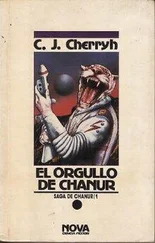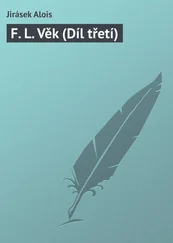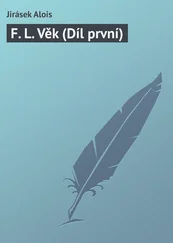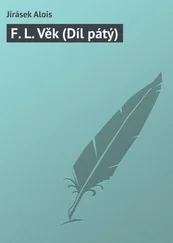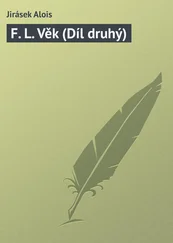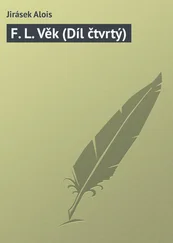C. Cherryh - Shon'jir
Здесь есть возможность читать онлайн «C. Cherryh - Shon'jir» весь текст электронной книги совершенно бесплатно (целиком полную версию без сокращений). В некоторых случаях можно слушать аудио, скачать через торрент в формате fb2 и присутствует краткое содержание. Жанр: romance_sf, на английском языке. Описание произведения, (предисловие) а так же отзывы посетителей доступны на портале библиотеки ЛибКат.
- Название:Shon'jir
- Автор:
- Жанр:
- Год:неизвестен
- ISBN:нет данных
- Рейтинг книги:3 / 5. Голосов: 1
-
Избранное:Добавить в избранное
- Отзывы:
-
Ваша оценка:
- 60
- 1
- 2
- 3
- 4
- 5
Shon'jir: краткое содержание, описание и аннотация
Предлагаем к чтению аннотацию, описание, краткое содержание или предисловие (зависит от того, что написал сам автор книги «Shon'jir»). Если вы не нашли необходимую информацию о книге — напишите в комментариях, мы постараемся отыскать её.
Shon'jir — читать онлайн бесплатно полную книгу (весь текст) целиком
Ниже представлен текст книги, разбитый по страницам. Система сохранения места последней прочитанной страницы, позволяет с удобством читать онлайн бесплатно книгу «Shon'jir», без необходимости каждый раз заново искать на чём Вы остановились. Поставьте закладку, и сможете в любой момент перейти на страницу, на которой закончили чтение.
Интервал:
Закладка:
It made sense, Duncan thought late, upon his bed, while the mri chose the floor. Niun fought to keep what was his, a way and a language that had almost entirely perished. It was a quiet battle, waged against him, who had most helped them and now most threatened them. It was something against which guns and skill did not avail, but life and death, all the same. It was why they were here at all, why they had been unable to live among humans, why he had argued with Stavros to free them. There was no compromise possible for them. They could not bear with strangeness. A human could; a human could adapt, facile as the jo, who looked like sand or stone, and waited. He considered this, and considered the sleeping mri, who lay with his head against his dus, unveiled as he would not unveil to an enemy.
Jo-fashion, a human could change and change again; the mri would obstinately die: and therefore it was inevitable that Niun should have his way.
In the morning Duncan set about his routines, and utterly bit back objections with Niun, went so far as to ask what he would have done.
Niun's amber eyes swept the compartment; a long-fingered hand made an inclusive gesture. "E'nai," he said, "i." Remove it all. Duncan stared, drew a long breath, and considered the matter.
The ship grew cold in the passing days, the air gradually resembling Kesrith's dry chill. Duncan was glad of the warmth of the mri robes that he wore from the skin outward. He learned the veil and the manners of it; he learned words and courtesies and gestures, and abandoned his own.
Niun sensed, surely, how far he was pressed, the frustration that welled upward in him at times, and averted his face and resumed the veil when matters came too close to impasse. There would be silence for a time, and finally words again. Niun named the things of which he did not approve: comforts and furnishings of all sorts. Duncan acquiesced, yielded up such of his own belongings as still remained, for the attachment he had to them seemed distant in this place, faced with what misery lay ahead for him; and as for damage to the ship, that seemed insufficient revenge on those that had sent him here. He worked at it, bewildered at first by what Niun asked, then grimly pleased in it. He stripped the accessible compartments of all furnishings, disassembled the furniture and stored what parts were useful metals and materials and cast the rest out the destruct chute. After that went all machinery the mri considered superfluous, medical and otherwise, and all goods in storage that were counted luxuries.
It was madness. Duncan abandoned himself to it, began in his own frustration to seek out things to cast away, destroying for the joy'of it, making of the ship only a shell, in which he did not have to remember Stavros, or humanity, or any other thing that he had cast away to come here. The loss of everything dulled all sense of loss.
The labs were mostly stripped already, back at station: all that had been reckoned unnecessary to the mission had already been taken, and all that he would desperately have saved, Niun had already destroyed. Duncan finished the job, down to the cleats that had held the furnishings, chem-scrubbed the floors, the walls, rendering the place acceptable for this largest compartment on the ship Niun had chosen for their own.
Thereafter Duncan slept on a pallet no thicker than a folded blanket, and wakened stiff and fell to coughing again in the chill air, so that he began to brood over his health, and thought desperately of the medicines that Niun had destroyed, for that and for other purposes.
But Niun looked at him with some concern, and tacitly forgot his objection to work, and took on himself that day the preparation of meals and the care of the dusei. Niun flourished in the chill, thin air had lost that frail, tottering movement in his step, and ceased to tire so quickly.
"You rest," Niun wished him when he persisted in trying to keep his schedule; Duncan shrugged and avowed the machinery would not run without him, which it would; but he was panicked now at the thought of idleness, sitting endlessly in the shell that he had left of the labs, of the rest of the ship, without books Niun had cast out the reading and the music tapes in his quarters without any occupation for hands or mind.
And when he was forced, he returned to the lab, that featureless white room, and settled in the corner, where at least his pallet and Niun's and the joining of the walls gave him some feeling of location. There, as he would do late at night to fall asleep, he sat and added chains of figures, did complex calculations of imaginary navigation, anything to fill the hours watched the unchanging starscreen that was the lab's only feature. There was for sound only the whisper of air in the ducts, the steady machine noise of the ship's inner workings.
And nothing.
Nothing.
Niun was long absent that day with Me'ei°» Duncan reckoned, in that part of the ship that was barred to him; even the dusei were gone, constantly attendant on Niun. In idleness Duncan found a bit of metal and made a design on the tiles next his pallet, and then, with a certain grim humor, made marks for the days that had passed, ship-time, desperately reckoning that there could come a time he would lose track of everything in this place.
Nine days, thus far. Even of this he was marginally uncertain.
He began a chain of figures, thrusting his mind away from the lattice-gaps he had begun to have in his memory, trying to lose himself in regularities.
Unlike the jo, he was not successfully camouflaging, he reckoned; even the jo, cast into this sterile cubicle, given nothing to pattern from, could not find a place. It would blacken like a wretched specimen he had seen in Boaz' lab, going through color change after color change until it settled on the most conspicuous of all a method of suicide, perhaps, death wish.
He thrust his thoughts away from that, too, but the image kept returning, the black winged creature in the silver cage; himself, from godlike perspective, sitting in the corner of a white and featureless room.
Nine days.
The afternoon of the tenth, Niun came back earlier than previously, banished the dusei to the far corner of the room, and unveiled, settled crosslegged on the floor a little removed from Duncan and facing him.
"You sit too much," Niun said.
"I am resting," Duncan said with an edge of bitterness.
Niun held up two metal rods, slender, and no more than a hand's length. "You will learn a game," Niun said, not: I will teach you; not: Would it please you? Duncan frowned, considered taking offense: but that the grim mri had entertainments: this pricked his interest, promised comradeship, a chance to talk with the kel'en as he had not been able to talk with him since the desert. And it promised something to fill the silence.
He bestirred himself on his pallet, assumed carefully the position that Niun held, crosslegged, hands on knees. Niun showed him the grip he had on the end of the rod in his right hand.
"You must catch," said Niun, and spun the rod toward him. Duncan caught it, startled, in his fist, not his fingers, and the butt of it stung his palm. '
The second followed, from Niun's left hand. Duncan caught it and dropped it. Niun held up both hands empty.
"Both at once," Niun said.
It was difficult. It was exceedingly difficult. Duncan's work-sore hands were less quick than Niun's slender fingers, that never missed, that snatched the most awkward throws from midair, and returned them always at the same angle and speed, singly until Duncan could make the difficult catch,-and then together.
"We call it shon'ai," said Niun. "Shonau is pass. In your language, then, the Passing game. It sings the People; each caste plays in its own way." He spoke, and the rods flew back and forth gently between them, Duncan's fingers growing more sure than they had been. "There are three castes of the People: Kath and Kel and Sen. We are of the Kel, we black-robes, we that fight; the Sen is the yellow-robes, the scholars; and the white, the she'pan; the Kath is the caste of women neither Kel nor Sen, the blue-robes, and the children they are Kath until they take caste.”
Читать дальшеИнтервал:
Закладка:
Похожие книги на «Shon'jir»
Представляем Вашему вниманию похожие книги на «Shon'jir» списком для выбора. Мы отобрали схожую по названию и смыслу литературу в надежде предоставить читателям больше вариантов отыскать новые, интересные, ещё непрочитанные произведения.
Обсуждение, отзывы о книге «Shon'jir» и просто собственные мнения читателей. Оставьте ваши комментарии, напишите, что Вы думаете о произведении, его смысле или главных героях. Укажите что конкретно понравилось, а что нет, и почему Вы так считаете.


